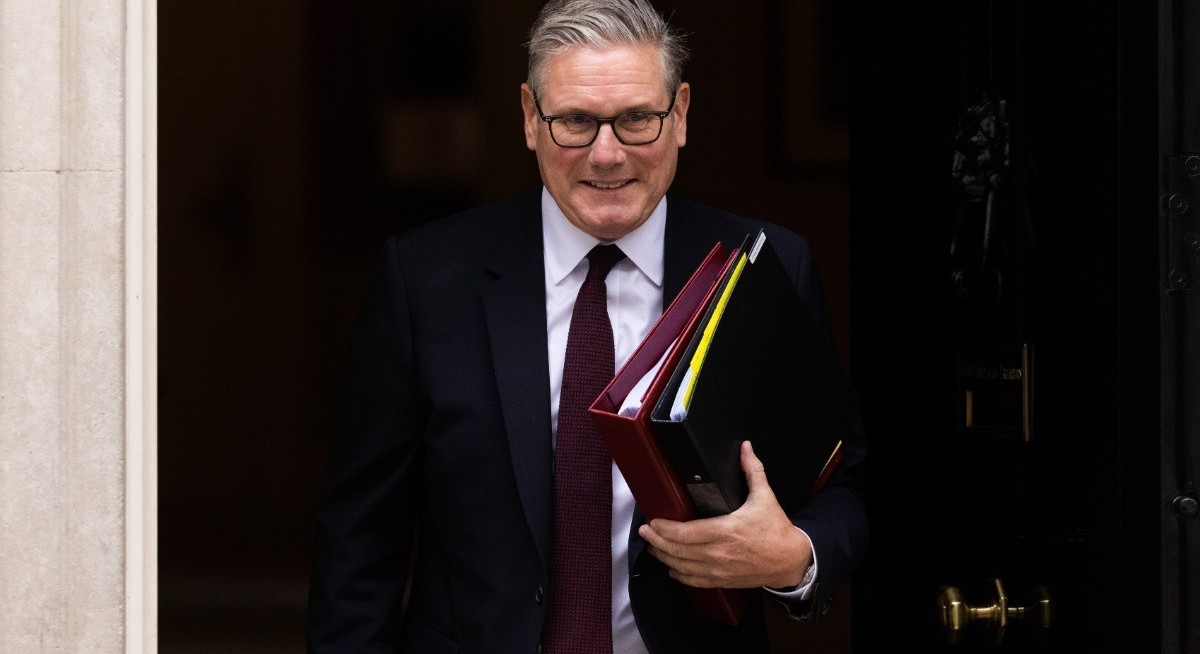(Oct 29): Prime Minister Keir Starmer refused to rule out raising income tax, national insurance or value-added tax at the upcoming budget, suggesting the government may break its election manifesto promises to fill a growing hole in the public finances.
Asked by Conservative opposition leader Kemi Badenoch if he’d adhere to the electoral vow on the three key tax rates — one of Labour’s flagship offerings in last year’s campaign — the premier avoided answering.
“The budget is on the 26th of November and we will lay out our plans but I can tell the House now that we will build a stronger economy,” he told the House of Commons on Wednesday (Oct 29).
The reply marks a shift in the language used by senior ministers about a promise that has severely tied Chancellor of the Exchequer Rachel Reeves’ hands because the three levies are the Treasury’s biggest revenue raisers. When asked the same question in July, Starmer replied simply that “yes”, he would stick to the pledge. Since then, he and other ministers have repeatedly said “the manifesto stands” when asked about the taxes.
Starmer was also non-committal when asked to repeat a promise not to extend a freeze on the thresholds at which different levels of income tax are levied — a policy that drags more people into higher tax brackets. “The freeze was introduced by them,” he said, referring to the opposition Conservatives.
See also: JPMorgan to build new London HQ in Canary Wharf
In a briefing after the premier’s Commons appearance, his press secretary also declined to say the manifesto stood regarding the three tax rates, referring reporters to the premier’s words. In daily briefings, Downing Street spokespeople have repeatedly used the formulation “the manifesto stands” in recent weeks.
Rising expectations around tax hikes and spending cuts that could worsen an economic slowdown are putting pressure on the pound, with sterling hitting its weakest against the euro since 2023 on Wednesday. The British currency is on track for its longest monthly losing streak in nine years.
Economists at Goldman Sachs Group Inc, meanwhile, reinstated a call for the Bank of England to cut interest rates next week — a move that would undermine the appeal of the pound — citing recent economic data and the expectation that November’s budget will deliver a “large, contractionary impulse to the economy.”
See also: UK mulls expanding bill market to diversify investor base
Reeves may have to contend with a hit to the public finances running to more than £20 billion due to the Office for Budget Responsibility downgrading its estimate for the productivity of the UK economy. Starmer alluded to this in the Commons, blaming his Tory predecessors for the state of the British economy. “Those figures are now coming through and they confirm that the Tories did even more damage to the economy than we previously thought,” he said.
Reeves also addressed the OBR downgrade in an op-ed published by The Guardian newspaper on Tuesday evening, vowing to “defy” weaker growth forecasts but also acknowledging that her budget choices “are not easy”. She stressed her commitment to fiscal responsibility while saying, “There can be no return to austerity,” a reference to the spending cuts under the Conservatives in the 2010s.
Austerity “choked investment, racked up debt and left hospital waiting lists soaring,” she said. “If productivity is our challenge, then investment is our solution.”
The OBR downgrade, along with costly policy u-turns and higher borrowing costs, has left Reeves facing a fiscal hole as big as £35 billion to restore the £9.9 billion margin for error she enjoyed at her spring statement in March. She’s indicated she wants to increase that buffer.
The Guardian reported last week that Reeves was considering raising income tax. Meanwhile, the Resolution Foundation think tank, which is increasingly influential in the Treasury, has proposed cutting employee national insurance, a payroll tax, by 2 percentage points and raising the basic rate of income tax by the same amount. That would allow the Treasury to raise £6 billion because income tax is levied on more people than national insurance.






